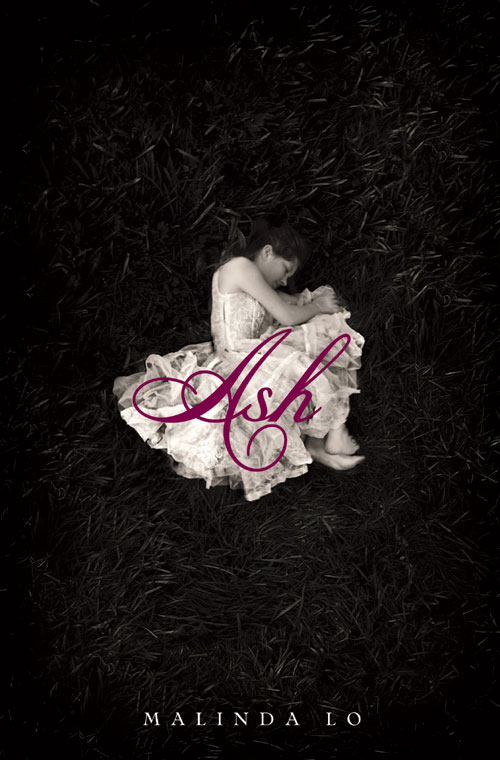If all anybody has told you about Malinda Lo’s Ash is that it’s a lesbian Cinderella, they have done you a grave disservice. Because Ash is something else entirely. It’s a re-imagining of Cinderella, yes, but it’s important to consider that it’s a re-imagining, not a retelling. Rather, Lo’s book shifts the focus of the fairytale entirely—away from any romance Aisling (“Ash”) may pursue, or that might pursue her, and instead into her personal growth and her ability to choose and bargain for herself.
While the generic outlines of the story—girl orphaned, abused, and rescued—cohere to the broadest plot of Cinderella, the details and the thematic freight stand apart.
Ash’s romantic objects (the prince, the huntress, and the fairy lord) barely enter into the book for the first half. Instead, Ash’s father is widowed, and (in a nice nod to older versions of Cinderella) Ash waters her mother’s grave with her tears. Ash, a weird and bookish girl, is unable to move past the death of her beloved parent, to the point where the village wisewoman fears that she will be taken by the fairies.
As, indeed, she very nearly is.
Ash’s fairy benefactor, Sidhean, is no Glinda the Good. Complex, conflicted, aching, he is himself worth the price of admission—and his assistance to Ash is not without price. Nor are Ash’s father, stepmother, and stepsisters one-dimensional characters defined only by their relations to the protagonist, as might be expected of a fairy tale. Her father may or may not be feckless and much to blame for his own misfortune (we have the story only through the eyes of Ash’s stepmother, who is hardly a reliable source and may, in fact, have had a hand in his death). Ash’s stepmother too is open to interpretation: she is perhaps a desperate woman trying to salvage what she can of a bad situation, or perhaps a black widow disappointed in her latest victim’s estate.
And Ash’s stepsisters are pragmatic, comprehensible young women, worldly and aware that they are bending to necessity in all things. Life is not simple in the world of this book: these fairy tale princesses inhabit a realm of financial burdens and needful politics straight out of Jane Austen.
In the face of this setting, a great deal of Ash’s emotional journey is from self-absorbed adolescence to self-aware adulthood, and it is in the context of that journey that her various potential relationships are explored. She has the option of escape and continued dependence—the Fairy realm, the “heart of stone” choice. She has the option of seeking power, glamor, and storybook romance—the prince of the realm, who is nothing to the book but a distant presence, occasionally on screen but never revealed in depth. Or she has the option of a companionate love of equals, one that will require her to pay her debts and keep her bargains, and meet her lover as a full contributor to the relationship.
I found this deeply satisfying.
This is not to say that the book is entirely without issues. I think in the end Sidhean lets Ash off a little easily, but as that conflict of conscience has been established in his character from the start, it didn’t bother me too terribly. (A fairy crippled by conscience as a fairytale princess’s benefactor! What a lovely place for that trope.) I did think that parts of the book were a little static, and while I loved that Ash’s reduced circumstances as housekeeper were presented not in melodramatic terms but as the sort of crappy poverty-level job with which so many of us are familiar, I did feel that the focus of the book suffered somewhat through the middle.
The language, however, is beautiful; the world is richly realized; and Ash herself is a quiet girl having the sorts of adventures quiet girls dread and dream of in equal measure.
Elizabeth Bear does believe in fairies.










